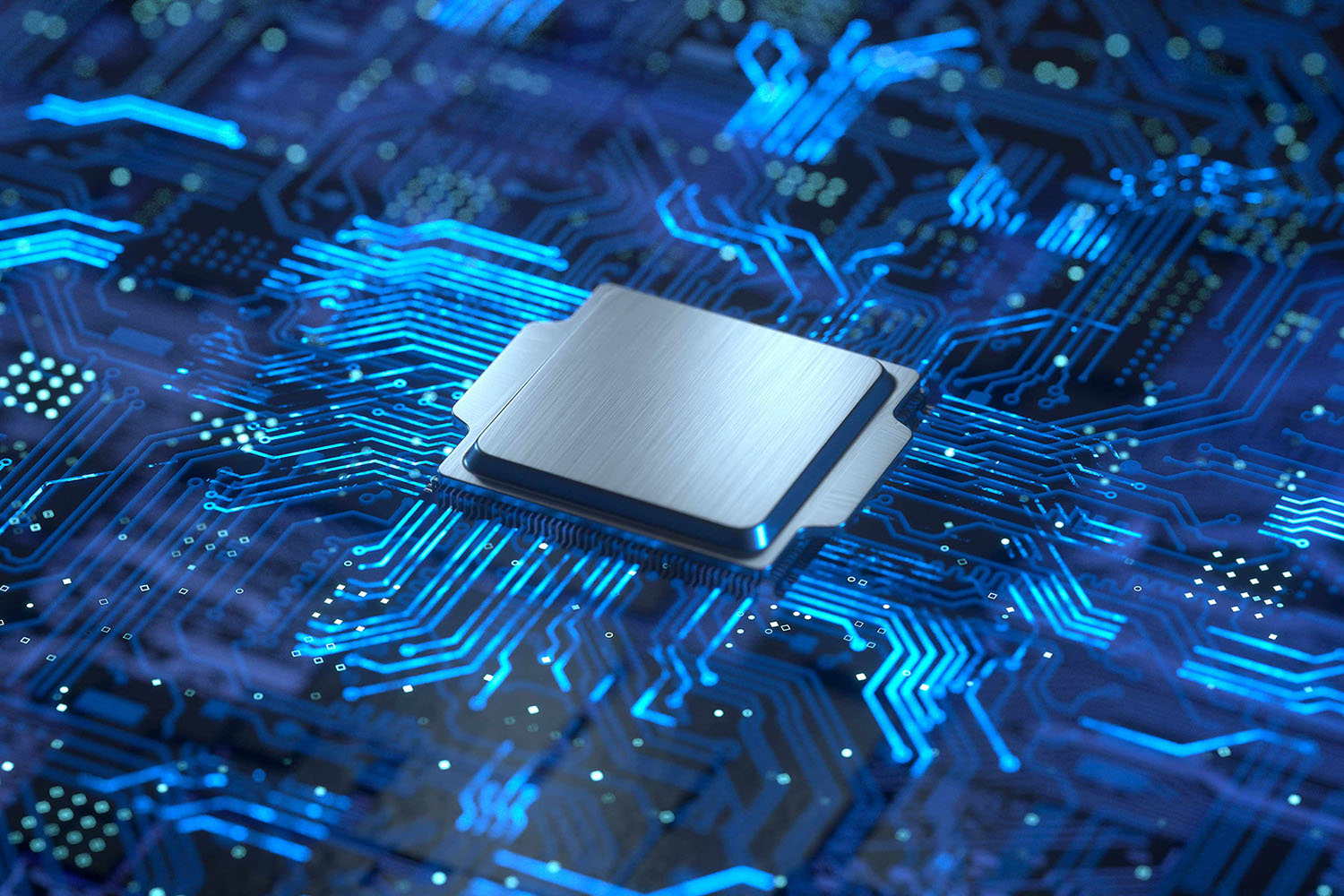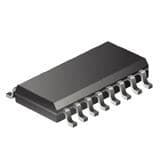
Semiconductors are the heart and soul of modern electronics. From the devices we use daily—smartphones, laptops, and cars—to complex industrial machines, semiconductors power nearly every aspect of our lives. As the demand for electronic devices continues to grow, so does the need for high-quality semiconductors. However, purchasing semiconductors isn’t as simple as picking an item off the shelf. Whether you're a business sourcing components for manufacturing or a hobbyist working on a personal project, there are several critical factors to consider when purchasing semiconductors to ensure that you're getting the right product at the right price.
Functional Factor for Semiconductors
Semiconductors are the brains of modern age electronics, enabling technologies critical economic growth, national security, and global competitiveness. Semiconductors advances leaps and bounds in communications, clean energy, health care, military systems, transportation, computing, and many other applications.
With upcoming types of technologies that brings impact on society, including virtual reality, the Internet of Things, energy-efficient sensing, brain-inspired computing, automated devices, robotics, and artificial intelligence. Semiconductors’ greatest potential lies ahead.
Understand Your Specific Needs
Before diving into purchasing semiconductors, it's essential to have a clear understanding of your specific requirements. Semiconductors come in various types, specifications, and qualities, so the first step is to identify what exactly you need. Ask yourself:
• What function will the semiconductor serve? Are you looking for processors, memory chips, diodes, transistors, or power devices?
• What are the environmental conditions? Will the semiconductor be used in extreme temperatures, high humidity, or other specific conditions?
• What performance standards must be met? Will the application require low power consumption, high-speed processing, or durability?
• What is the expected life cycle? Are you developing a product for mass production, or is this a short-term project?
By answering these questions, you'll be in a better position to choose the right semiconductor for your application, minimizing the risk of costly mistakes.
Check the Manufacturer’s Reputation
When purchasing semiconductors, the manufacturer's reputation is paramount. Renowned semiconductor manufacturers such as Intel, Texas Instruments, and Samsung are known for producing reliable, high-performance chips that meet global standards. On the other hand, lesser-known brands may offer cheaper alternatives, but these might come with a higher risk of defects, poor performance, or shorter lifespans.
Always check for manufacturer certifications, such as ISO or RoHS compliance, which ensure that the components meet safety and quality standards. Additionally, researching the manufacturer's history and customer reviews can give you insight into the consistency and reliability of their products.
Verify the Product's Authenticity
The market for semiconductors has seen an increase in counterfeit products, especially with the rise in global demand. These fake components may look similar to their authentic counterparts, but they often have subpar performance, lower durability, and could potentially harm the devices they power.
To avoid counterfeit parts, always purchase from trusted suppliers, especially authorized distributors. Many semiconductor manufacturers have partnerships with authorized resellers that guarantee the authenticity of their products. Look for components with proper labeling and certification, and be cautious if the price is too good to be true.
Consider Supply Chain Stability
The semiconductor industry has been plagued by supply chain disruptions in recent years. Factors like geopolitical tensions, natural disasters, and raw material shortages can lead to delays and price fluctuations. For businesses relying on semiconductors for mass production, supply chain stability is crucial.
Before making a purchase, research the supply chain reliability of the distributor or manufacturer. If you're purchasing for a long-term project, consider building relationships with suppliers who have a proven track record of reliability and flexibility. Additionally, it’s a good idea to have a contingency plan in case of shortages or delays.
Evaluate Lead Times and Availability
Lead time—the period between ordering a product and receiving it—can vary greatly in the semiconductor industry. Certain chips may have long lead times due to high demand or limited manufacturing capacity. It’s important to factor in lead time when planning your project timeline.
Ensure that the semiconductor supplier provides realistic delivery estimates. Also, inquire about stock levels and availability. If your project depends on specific chips, it’s essential to secure the components well in advance. In some cases, it may be worth ordering in bulk or placing a pre-order to lock in supply.
Understand the Pricing Structure
The price of semiconductors can vary depending on several factors, including the type of component, the manufacturer, and market conditions. Prices can fluctuate significantly based on demand, the volume of the order, and even the time of year. For businesses looking to purchase in bulk, negotiating with suppliers for better rates can help reduce overall costs.
However, it's important to be wary of prices that seem too good to be true. If a semiconductor is priced far below the industry standard, it could indicate lower quality or the presence of counterfeit parts. Be sure to compare prices across several trusted suppliers to get a sense of the market rate.
Confirm Compatibility with Existing Systems
Not all semiconductors are compatible with every system. Ensure that the components you're purchasing meet the specifications of your existing design or hardware. A minor mistake in selecting the wrong chip can lead to costly design errors, product malfunctions, or even complete failure of the system.
To avoid compatibility issues, double-check the datasheets and technical specifications of the components. These documents provide valuable information about voltage levels, current ratings, pin configurations, and other technical details. If you're unsure, consult with engineers or technical experts who can help ensure compatibility.
Focus on Sustainability and Environmental Impact
In recent years, the semiconductor industry has become increasingly focused on sustainability. Many manufacturers now offer components that are designed with energy efficiency and minimal environmental impact in mind. Some semiconductors are also RoHS (Restriction of Hazardous Substances) compliant, meaning they do not contain harmful materials like lead or mercury.
If sustainability is important to you, check for certifications like RoHS, WEEE (Waste Electrical and Electronic Equipment), or other environmental standards when purchasing semiconductors. Supporting manufacturers who prioritize sustainable production processes can contribute to reducing the industry's environmental footprint.
Check Warranty and Support Options
A reliable warranty and strong customer support can make a big difference if something goes wrong after your purchase. A good warranty will cover defects in manufacturing or performance issues. It’s important to clarify warranty terms, including the length of coverage and the process for returns or replacements.
Additionally, choose suppliers who offer technical support to assist you if issues arise. Strong post-purchase support can save you time and money, especially if you encounter compatibility problems or need troubleshooting assistance.
Global Sourcing for Semiconductors
Global sourcing enables one to source for goods from international countries across geopolitical boundaries. The main purpose is to exploit global efficiencies such as lower cost, inaccessible raw materials and other economic factors like low trade tariffs and tax breaks.Companies sourcing from both inside and outside their country borders are better able to compete. Global sourcing needs to face the rapidly changing global market environment.
Category Management for Semiconductor
Category management is defined as a “Retailing and purchasing concept where a range of products purchased by a business or sold by a retailer is broken down into groups of similar or related products”. Category management deters from determining the performance of individual brands, and towards the performance of categories of products. The aim is to provide a triple-win situation where purchasers, suppliers and consumers benefit.
In theory, category management provides opportunities for the purchase and selection of the product to meet the business needs. It is believed to achieve cost reduction, helping the company to take a selling perspective and helps to gain sales-building opportunities which addresses issues at the category level.
Look for Long-Term Partnerships
For businesses or manufacturers who rely heavily on semiconductors, establishing a long-term relationship with a trusted supplier can provide several advantages. These partnerships can lead to better pricing, access to exclusive products, priority support, and more efficient supply chain management.
By working with a single distributor or manufacturer, you can streamline the procurement process, reduce overhead, and ensure the consistency of your components across different production runs.
Conclusion
Purchasing semiconductors is a critical decision that requires careful planning and consideration. Whether you're a business sourcing components for a new product or an individual building a DIY project, understanding your specific needs, checking product authenticity, and ensuring compatibility with your existing systems are essential steps to a successful purchase. With the right approach, you can avoid costly mistakes, secure high-quality components, and build better electronic devices that meet your requirements.
By following these guidelines, you’ll be well-equipped to navigate the complex world of semiconductor purchasing, ensuring you get the best products at the best prices for your needs.
Written by Icey Ye from AIChipLink.
AIChipLink, one of the fastest-growing global independent electronic component distributors in the world, offers millions of products from thousands of manufacturers. Whether you need assistance finding the right part or electronic components manufacturers for your design, you can contact us via phone, chat or e-mail. Our support team will answer your inquiries within 24 hours.













